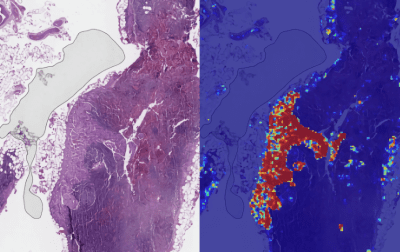Google’s AI To Detect Breast Cancer

Google researchers have developed deep learning algorithms that can detect breast cancer metastasis with a high level of positives. Google’s AI called Lymph Node Assistant (LYNA) detect the details and characteristics of tumours using two pathological slides.
According to Google, its artificial intelligence has managed to differentiate between slides with cancer and without cancer by 99% of cases, even in very small metastases that humans could ignore.
The problem with certain cancer types such as breast and prostate cancer is well known: The odds of false-positive as well as false-negative results is quite high with the conventional imaging methods – so you have a bad choice, either a tumour not to recognize or have to perform biopsies, although in retrospect they would not have been necessary.
AI is not an automated system to detect breast cancer, but a way to help medical specialists to find the affected areas of the breast more accurately. Not only it is a help, but it will also allow reducing the inspection time of each patient in a single minute. To put it concretely, Google – or even the deep-learning labs – are in a position where they can browse and analyze every pixel in 1000 images as with just one image. And by injecting and steadily accumulating other results, an ever-growing mountain of comparative cases arises that the software can retrieve for evaluation.
Google has just developed this system together with the Naval Medical Center of San Diego, who have provided gigapixel-sized tests for their study. Although, for now, AI is not assisting any hospital.
The work of Google is bearing fruit and we hope that they do not stop at this task.





